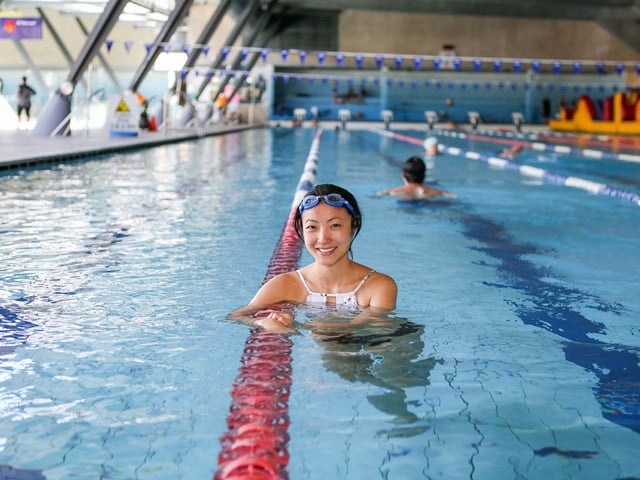Register your public pool or spa
Public pools and spas, including children’s splash pools, must be registered with us.
When you need to do this
If you own or occupy a public pool or spa you will need to register it.
What you need to do
-
Complete the form
Complete the public swimming pools and spas – new premises registration/change existing registration form and pay the $105 fee.
-
Email the completed form to us
Email your form to [email protected]
Other information
Regular safety testing
People aren’t the only ones who enjoy a swim. Pathogens such as viruses, bacteria, fungi, amoebae and other parasites can thrive in pools and spas unless the appropriate steps are taken to control their numbers.
All people who use public swimming pools and spa pools are susceptible to infection through cuts, wounds, ingestion and inhalation. Public pools are more likely to be contaminated than domestic swimming pools because more people use them, so public pools and spas must be regularly tested.
Operators of public pools should have a sound knowledge of pool operating procedures, including:
- pool equipment
- pool maintenance
- pool disinfection requirements
- water testing
- first aid
- life-saving and resuscitation techniques.
Contamination response
In case the pool is subjected to contamination such as vomit, faeces or blood, you should develop and follow a contamination response plan.
A register or log should be used to record the results of every test performed at your pool or spa.
Inspection and sampling
City of Sydney officers have authority to inspect public swimming pools, spa pools and associated premises. An inspection will assess compliance with schedule 1 of the Public Health Regulation 2022, which requires that:
- disinfection must be automatic or continuously metered
- the water meets certain temperature, pH and alkalinity requirements
- water testing shows correct levels of chlorine or bromine
- operators can show their own testing methods and associated records.
Officers do not regulate public health issues in pools and spas within private residential premises including strata residential buildings.
If chemical tests reveal unsatisfactory results, officers will sample the water for micro-organisms.
All testing is undertaken by a laboratory accredited by the National Association of Testing Authorities.
If results reveal elevated levels of micro-organisms, officers can issue a warning letter, an improvement notice or order the pool be closed under a prohibition order.
Once a pool or spa is closed, public use is prohibited until appropriate disinfection procedures are carried out and additional tests passed.
It is an offence under the Public Health Act 2010 if the terms of the order are breached.
Acceptable microorganism levels
Including penalties for exceeding these levels.
| Type of organism | Maximum count allowable | Action to be taken if levels too high |
|---|---|---|
| Heterotrophic Plate Count | 100 Colony Forming Units (CFU) per ml | Warning letter if levels between 100 and 1000 CFU/mL Prohibition order if levels greater than 1000 CFU/mL |
| Thermotolerant coliforms | Nil per 100mL | Warning letter if levels between 0 and 10 CFU/mL Prohibition order if levels greater than 10CFU/mL |
| Pseudomonas aeruginosa | Nil per 100mL | Warning letter if levels between 0 and 10 CFU/mL Closure order if levels greater than 10 CFU/mL |


